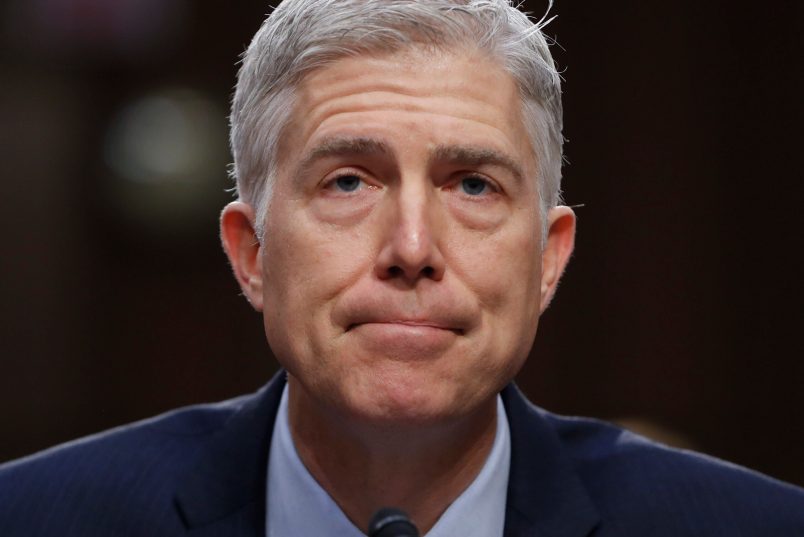Judge Neil Gorsuch on Tuesday said that he was “proud of” his work coordinating the legislative effort to pass an amendment pushed by Sen. Lindsey Graham (R-SC) that would have slashed the legal rights of detainees at the U.S. detention center in Guantánamo Bay, Cuba.
“I’m proud of it because we managed to come up with a bipartisan bill that I think passed this body with over 80 or maybe 90 votes, I don’t remember,” Gorsuch told Senate Judiciary Committee ranking member Dianne Feinstein (D-CA) during his confirmation hearing to the Supreme Court.
As a senior official in the Justice Department during President George. W. Bush’s administration, Gorsuch worked with Graham in 2005 to draft the amendment to the Detainee Treatment Act cutting Guantánamo detainees off from access to federal courts.
He said on Tuesday that the bill “affirmed this country’s commitment to prevent cruel, inhuman and degrading treatment and … provided a regime that was agreed by the Congress and the president on how Guantánamo detainees should have their claims processed.”
Pressed by Feinstein on the part of the amendment that would have barred detainees from petitioning for a writ of habeas corpus to challenge their imprisonment, Gorsuch said that he was just “a lawyer for a client” and the bill “was eventually litigated as all these things are.”
“The D.C. Circuit upheld it. The Supreme Court of the United States eventually many, many years later found that the process was insufficient,” he said. “I respect that decision as a precedent of the United States Supreme Court no less than any other.”
“Count me with John Bellinger most of the time on these things,” he added, referring to the State Department’s top lawyer who played a key role in the authorization for torture.
Under further questioning, Gorsuch also said that he does not believe that the authority to intercept the communications of U.S. citizens is “inherent in the office” of the President.
“Do you still believe that the President has inherent authority — this is important — to intercept the communications of Americans in the United States that cannot be legislated away by Congress?” Feinstein asked.
“Goodness, no,” Gorsuch replied.







Well…if you’re gonna be a right wing ideologue OWN it. Thanks for playing!
Mr Gorsuch… do you believe that the Supreme Court has ever made a mistake in any of their rulings ?
http://harpers.org/blog/2008/03/the-torture-team/
And Gorsuch responds: Only the ones that were made by liberal activist justices.
It’s doesn’t really matter how many years administration lawyers were able to delay supreme court review. If the court says something was unlawful, it was unlawful the day it was done.